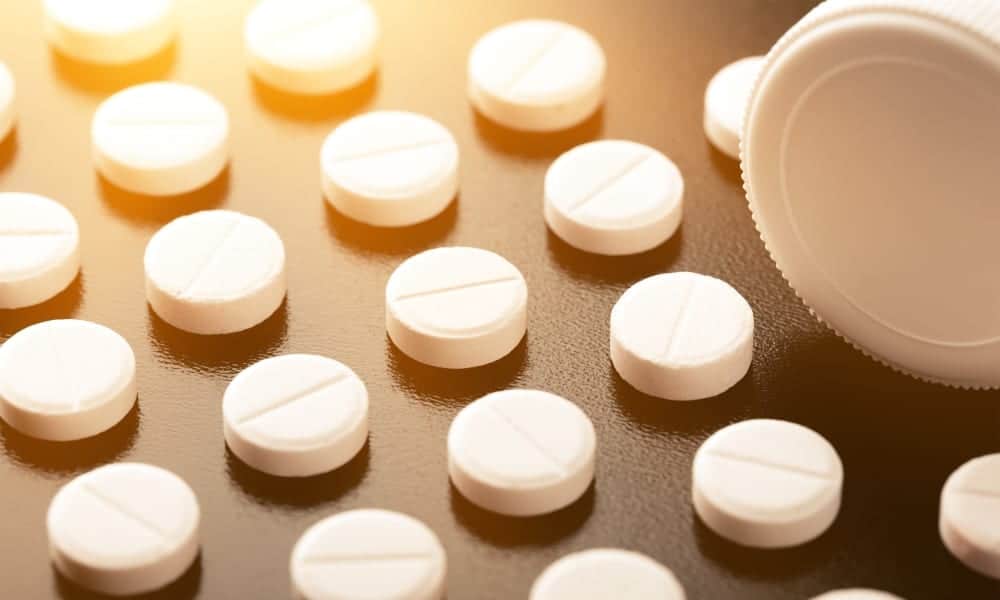Your term paper is due tomorrow. You know about that deadline. Even so, you’re spending your evening catching up on past episodes of Grey’s Anatomy.
What’s going on?
Procrastination is a key part of student life. According to the American Psychological Association, some 95 percent of college students engage in the activity, especially when their next task involves homework.
Adderall and other so-called “study drugs” such as Modafinil offer the promise of instant escape. Swallow just one pill, they claim, and you’ll achieve a laser-like focus that helps you to blast through all your homework. Best of all, you’ll actually enjoy study time.
If this sounds too good to be true, it’s because it is. Adderall is a prescription drug that’s designed to do one thing for one group of people. Research suggests that those who benefit from Adderall are at low risk for abusing it. Those who do take the drug recreationally can develop addictions. Without treatment, substance abuse can lead to overdose and death.
Adderall’s Therapeutic Promise
Adderall is a prescription medication that contains dextroamphetamine and amphetamine. It’s typically sold in pill form, and it’s made to help people cope with attention deficit hyperactivity disorder (ADHD).
For people with ADHD, it’s not easy to complete any task without:
- Fidgeting
- Interrupting
- Procrastinating
- Worrying
As much as they might want to stay focused and on task, their minds tend to wander. They also struggle with impulse control, and that can make them say exactly the wrong thing in delicate situations.
An inability to finish tasks, combined with social awkwardness, leads to a difficult life. People with ADHD can’t find success, and they sometimes can’t find people who will help them.
The U.S. Food and Drug Administration reports that it’s not clear why Adderall helps people with ADHD, but it’s thought that the medication blocks the recycling of two essential brain chemicals: norepinephrine and dopamine. When they can’t be recycled, they build up in the brain, and it’s thought that the flood can enhance focus and attention.
Research suggests that people with ADHD might have a deficit of these chemicals. When people with this disorder take Adderall, they don’t find it rewarding or amazing. They just feel normal, natural, or focused.
But people without ADHD have a completely different response to Adderall, and that’s where the trouble begins.
Adderall’s Abuse Potential
The brain chemical dopamine is associated with focus, but it’s also been linked to substance abuse. When your body is awash with this substance, you feel euphoric and supported. For some people, that shift is unforgettable, and it drives them to find more drugs at higher and higher doses.
Research suggests that Adderall abuse is prominent among people ages 18 to 25. This college crowd is under pressure to get good grades, land the perfect internship, make connections, and score a high-paying job. Packed schedules and high expectations are the norm. The promise of focus and euphoria in a pill is very attractive to people like this.
Adderall is also remarkably easy for college students to get. Experts say scores of young people are diagnosed with ADHD every day, and each person walks away from a doctor’s appointment with a prescription for substances like Adderall.
Young people can give, sell, or barter their drugs away. Often, young people are introduced to Adderall by a fellow student, and once they’ve had a taste, it’s hard to give up the drug.
How Does Adderall Abuse Begin?
Brain cells are sensitive, and Adderall’s influence can persist. A brain that is exposed to the drug multiple times goes through a predictable sequence of steps that leads to substance abuse.
- Introduction: Adderall causes a spike in brain chemicals, and it overwhelms the body’s standard procedures.
- Recovery: Brain cells take steps to limit Adderall reactions, so that same sense of intense intoxication won’t happen again.
- Repeat: The next dose of Adderall doesn’t seem to work as well as the first, so the user chooses to take more.
- Damage: The brain continues to limit reactions to Adderall, and in time, the cells no longer respond to natural levels of dopamine. Depression and drug cravings begin.
- Compulsive use: The user needs Adderall to feel normal, and higher doses are required.
Students can also develop a psychological fascination with the drug. When a major deadline looms, they feel compelled to reach for the pill bottle to pull them through. That urge doesn’t end when graduation day arrives. As writers point out in Quartz, young people who abused Adderall in college become adults who take the drug to deal with high-pressure jobs after school ends.
How Did This Happen?
Few people hand out their prescriptions for diabetes or heart disease to their friends and family members. And we’re not seeing an epidemic of abuse related to vitamins or minerals. So why is Adderall different?
Experts writing for the Huffington Post point out that the sales of prescription stimulants like Adderall have quintupled since 2002, and they blame that rise on marketing.
Ads for prescription medications like Adderall urge consumers to think about whether they might benefit from drugs. Do you struggle to focus? Are you fighting with your friends? Maybe Adderall would be the solution. Talk to your doctor about it.
We’ve all seen these ads on websites and television programs, and while we might not think they’re persuasive, the messaging can trickle into our subconscious. When we have an unfocused day, maybe we believe talking to a doctor would be smart. Or we could skip the doctor and just take the pill instead.
Those who do dabble in self-medication write long, articulate poems about their experiences. In one article published in The New York Times, the writer says Adderall is “fantastic,” and that his early experiences helped him focus to a degree he never thought possible.
Of course, many articles like this come with disclaimers about how the drug later became difficult, damaging, or even ruinous. But what if you only read the first part of this piece? You might walk away thinking this substance was right for you. And only after repeated doses would you discover the danger you’re in.
And here’s a bit of irony. For many young people, Adderall is the key to productivity and brilliance. But research suggests that the drug delivers neither.
In a study published in 2009, researchers found that overachievers felt no cognitive benefit with the drug. In fact, they did a little worse when under the influence. Only those in the lower levels of cognitive development had a boost.
Studies like this suggest that some students take Adderall, with all of its risks, for no real benefit at all. And once they start, it can be tremendously hard to stop.
Treatment Options for Adderall
Continued Adderall abuse leads to escalating doses. Chasing the high means exposing the brain to dangerous drug levels, and at some point, that can lead to overdose.
Adderall overdose is characterized by:
- Aggression
- Hallucination
- Rapid heart rate and breathing
- Fainting
- Vomiting
- Seizures
Sometimes, an overdose is a family’s first warning sign of an emerging addiction problem. Other families notice missing medications, lost money, failing grades, or general discomfort.
Adderall addictions don’t resolve without care. People need a slow taper from the medication to allow the body to resume normal function in the absence of the drug. The National Institute on Drug Abuse also reports that people with addictions benefit from two types of therapy.
- Cognitive behavioral therapy: This treatment helps to shift behaviors and expectations regarding drug use. It can also help people to manage stress and drug triggers.
- Contingency management: This treatment pairs a small reward with work done to control an addiction.
Recovery from Adderall addiction is certainly possible, and every day, people choose to fight back and move toward sobriety. If you or someone you love is stuck in a cycle of abuse, ask for help. With therapy, medication management, and support, you can recover the life you lost due to drug use.









